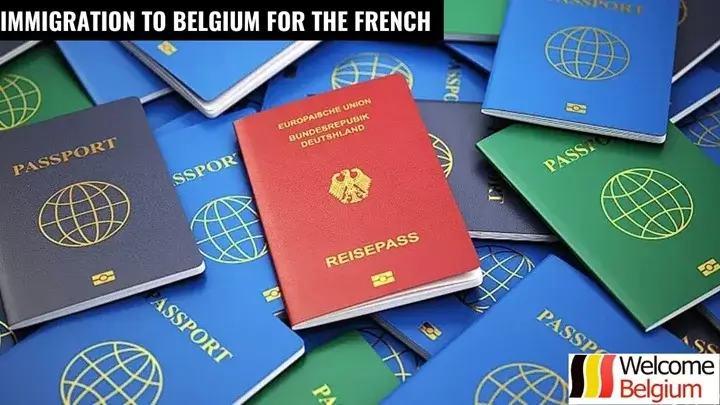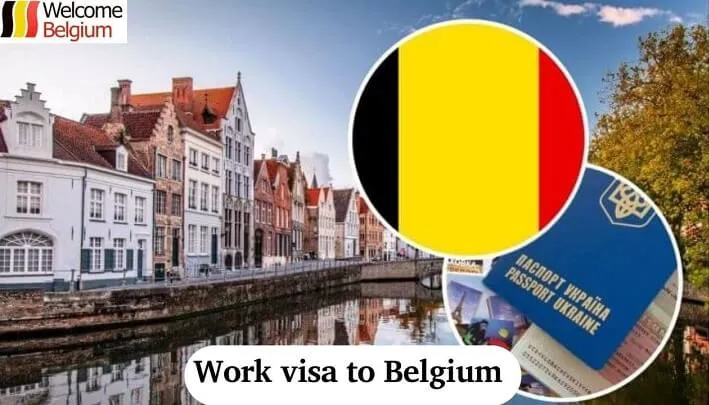Belgium attracts French residents with its proximity, common language and high standard of living. With procedures simple for EU citizens, moving is a real possibility for many. Learn about the key aspects of immigration: from paperwork to adaptation in a new country. Find out how to make your transition as comfortable as possible and avoid common mistakes.
Reasons for moving from France to Belgium
For many French people, Belgium is becoming an attractive destination for moving due to its comfortable living conditions, proximity to their home country and common cultural features. When comparing life in France and Belgium, expats note a more stable economy, a convenient tax system and a high level of social security. Employment opportunities and affordable housing play a special role. All this makes Belgium a popular choice for moving.
Reasons for moving from France to Belgium in detail:
- Convenient geographical location, allowing to maintain close ties with France.
- A common language and similar culture make adaptation easier.
- Stable economy and diverse employment opportunities.
- Attractive tax system for individual entrepreneurs and businesses.
- High level of social security and accessible health care.
- Lower prices for renting and buying housing in some regions.
- Developed transport infrastructure, facilitating movement within the country and abroad.
- A variety of educational opportunities for children and adults.
- Safe environment and low crime rates in most areas.
- Soft bureaucracy for EU citizens, which speeds up the process of paperwork.
According to statistics for 2024, around 15,000 French people have changed their place of residence, choosing Belgium. Most of them settled in Brussels, Wallonia and the border regions. The main reasons are professional opportunities, affordable housing and the desire for a better quality of life. These figures underline that Belgium remains a popular destination for the French.
Find out about the peculiarities of immigration to Belgium from Pakistan in this article.
Interesting fact: Belgium ranks first in the EU in terms of the number of languages used in official institutions.
Preparing for the move
Preparing to move from France to Belgium requires careful planning and consideration of many details. You need to understand the issues of paperwork, finding housing and choosing educational institutions if you are moving with your family. In addition, it is worth studying the main aspects of Belgian culture and the peculiarities of the local labor market to make the transition as comfortable as possible. The better you prepare, the easier it will be to adapt to a new place.
Documents for moving
Moving from France to Belgium is relatively easy thanks to common agreements within the European Union. However, for a successful move, it is important to prepare all the necessary documents in advance. Correctly completing the documents will save time and avoid unnecessary delays. Let’s figure out what documents are required to cross the border, register at the place of residence and obtain a visa, if necessary.
Documents for moving from France to Belgium in detail
- For EU citizens:
- national passport or ID card
- European Health Insurance Card
- proof of financial solvency (bank statements or employment contract)
- proof of residence in Belgium (rental agreement or letter from the host)
- For students:
- Admission to a Belgian educational institution
- confirmation of payment for tuition
- proof of funds for living expenses (letter from a sponsor or bank statements)
- For employment:
- confirmation of employment from a Belgian employer
- work visa or work permit (if applicable)
- medical certificate
Types of visas for moving with description:
- Short-term visa (type c): for those planning a temporary stay, for example for tourism or family visits
- Long-term visa (type d): for employment, study or family reunification
- Highly skilled worker visa: requires proof of qualifications and a job offer
- Investor visa: suitable for entrepreneurs willing to invest in the Belgian economy
Once you arrive in Belgium, you will need to register with the local commune where you live. This requires you to provide your passport, a rental agreement and, in some cases, proof of income. Registration must be completed within eight days of moving in. This step is important to obtain an identification number and access to local services.
How to find a job in Belgium? Details in our article.
Tip: Keep copies of all documents in digital format – this will make the process easier if the originals are lost.
Financial preparation
Before moving from France to Belgium, it is important to assess the upcoming expenses and plan a budget. The cost of living in Belgium differs from that in France, especially in large cities. A financial plan prepared in advance will help to avoid unexpected expenses and ensure comfort in the first months after the move.
The main categories of expenses when moving:
- Transportation of things – from 500 to 2000 euros, depending on the volume of luggage and distance.
- Accommodation:
- renting an apartment – from 800 to 1500 euros per month (more expensive in large cities);
- rental deposit (usually equal to two months’ rent) – from 1600 euros.
- Administrative expenses:
- paperwork – about 200-400 euros;
- translation and certification of documents – from 50 to 150 euros for each document.
- Initial setup costs:
- furniture and household appliances – from 1000 euros (in case of moving without furniture);
- Basic food and hygiene products – from 200 euros in the first month.
- Medical insurance – from 100 to 300 euros per month depending on the chosen company.
- Transportation costs:
- public transport – about 50-70 euros per month;
- purchase of a car (if necessary) – from 3000 euros.
Financial planning will help you avoid stress and create comfortable conditions in your new place. After moving, it is important to open a bank account in one of the Belgian banks for convenient financial management. Most banks offer free or low-cost service packages for new customers. Prepare in advance to make the adaptation process as easy as possible.
Want to work remotely in Belgium? Practical tips in this article.
Tip: Some Belgian banks allow you to open an account before you move, if you have proof of your future place of residence.
Search for housing
Finding a place to live is one of the key tasks for people moving from France to Belgium. Rental rates vary significantly depending on the region and city, which is important to consider when budgeting. The choice of where to live depends not only on financial capabilities, but also on personal preferences related to work, study or lifestyle.
Comparison of rental prices in different regions of Belgium:
- Brussels:
- one-bedroom apartment in the city centre – from 1000 to 1500 euros per month;
- a similar apartment outside the center – 700-1000 euros.
- Antwerp:
- housing in the center – 900-1300 euros for a one-room apartment;
- on the outskirts – 650-900 euros.
- Ghent:
- in the city center – 800-1200 euros for a one-room apartment;
- outside the center – 600-800 euros.
- Liege and Namur:
- city center – from 600 to 900 euros;
- outskirts – 500-700 euros.
- Flanders:
- more affordable options, especially in smaller towns – 500-800 euros.
Popular cities for immigrants from France:
- Brussels – thanks to its international atmosphere and the presence of a French-speaking community.
- Mons is a comfortable city, close to the border with France, with a relatively low cost of living.
- Liege is a major cultural centre with many opportunities for employment and study.
- Namur is a quiet city with French as the main language, which makes it easy to adapt.
- Ghent is popular among young people due to its university and developed infrastructure.
The choice of region and city to live in Belgium depends on the priorities of the immigrant. It is recommended to study the rental market in advance to understand what kind of housing meets your budget and requirements. It is important to remember that in some cases you will need to pay a deposit for rent equal to two or even three months of rent.
How to find a job in Ghent? Read our article for practical advice.
Tip: Many landlords in Belgium prefer long-term contracts of 9 years, but expats can negotiate shorter-term rental terms.
Obtaining a residence permit
French citizens, thanks to the membership of both countries in the European Union, have a simplified procedure for obtaining a residence permit in Belgium. When moving for a period of more than three months, registration with the local commune is required. A permanent residence permit becomes available to the French after five years of continuous residence in Belgium, subject to certain conditions.
Stages of obtaining permanent residence in Belgium:
- Registration in the commune. After moving, you must register in the commune at your place of residence within 8 working days. You will need documents: passport or ID card, rental agreement or other document confirming your residential address. The address and contacts of the local commune can be found on the city website, for example, for Brussels – www.brussels.be .
- Obtaining temporary registration. After submitting documents, a police check of the place of residence is carried out, which can take up to three weeks.
- Collection of documents for permanent residence. After five years of residence, you will need to prove a stable income, availability of housing, and compliance with local laws. The average cost of registration is about 50-100 euros.
- Submitting an application for permanent residence. The application is submitted to the local commune, the processing time can vary from one to three months.
French citizens can apply for Belgian citizenship after five years of permanent residence in the country, if conditions such as knowledge of one of the state languages and integration into society are met. It is important to remember that it is possible to retain French citizenship at the same time.
eID account to manage administrative documents in Belgium online.
Tips for adaptation
The first time in Belgium can be a challenge, but the right approach will make the process easier. It’s worth starting with learning the local traditions; although French is the official language in some regions, the cultural differences are noticeable. Make contacts with locals and other immigrants to quickly feel comfortable. It’s also important to understand the rules of life, from transport to household services.
Table. Basic expenses for one person and family for living in Belgium:
| Expense category | One person per month, € | Family of 3-4 people per month, € |
| Rent a house | 700–1000 | 1200–1800 |
| Public utilities | 100–150 | 200–300 |
| Products | 250–350 | 500–700 |
| Transport | 50–80 | 150–200 |
| Internet and mobile communications | 30–50 | 60–90 |
| Insurance | 50–100 | 150–300 |
| Education | – | 150–300 |
| Entertainment | 50–100 | 150–250 |
| Personal expenses | 50–100 | 150–200 |
| Unforeseen expenses | 50–100 | 100–200 |
Adapting to life in a new country is a process that requires time and patience. The French usually have fewer difficulties due to cultural and linguistic proximity, but it is important to be open to change. Learning local customs and laws, as well as being open to new acquaintances, will help you get used to life in Belgium faster. Don’t be afraid to ask questions, as most Belgians are willing to help with useful information.






